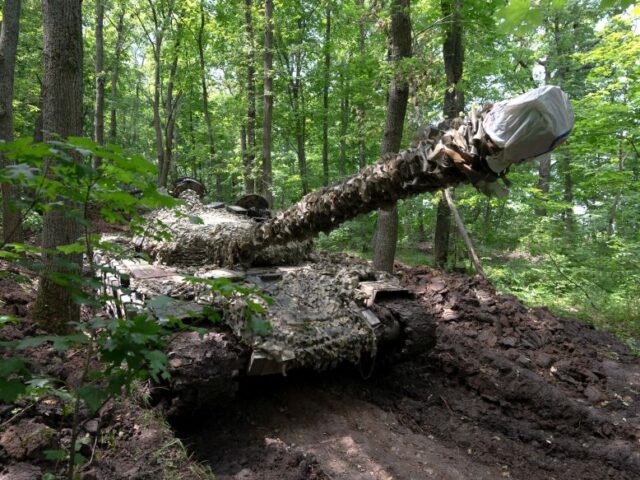A British soldier who deserted his unit while it was deployed to Europe on exercise to join up with the Ukrainians has been jailed for 12 months at his court-martial.
Fusilier Alexander Garms-Rizzi, who is half-Russian and grew up in Russia and described growing up with Ukrainian friends, claimed he could not stand by and watch the war unfold and said he had to go to Ukraine to fight against the Russian invasion. Fusilier Garms-Rizzi deserted his regiment while it was in Europe as part of a NATO deployment in Estonia and while he was on two weeks leave, crossing the border to head towards Ukraine without permission.
He was in Ukraine for six months before returning to the United Kingdom, where he was arrested at the border, reports the Daily Mail. The court-martial convened to hear his case dismissed the soldier from the Army, but ordered he would be held for 12 months first as punishment.
British ‘Mercenaries’ in Ukraine Sentenced to Death by Pro-Russia Separatistshttps://t.co/U4ph4PElt3
— Breitbart London (@BreitbartLondon) June 9, 2022
The judge hearing the case said that while Garms-Rizzi was an “intelligent and thoughtful young man” who had been up-front about what he had did, nevertheless he had disobeyed orders and potentially would have caused problems for the United Kingdom government had he been captured by Russian forces. The court heard that as well as fighting for Ukraine, Garms-Rizzi also did translations and medical extractions.
Per the Mail’s report, the prosecutor said:
Garms-Rizzi had regularly expressed concerns about the situation in Ukraine to colleagues. His mother is Russian. He is a fluent Russian and Italian speaker. A number of attempts were made to contact him. In messages he admitted that he was in Ukraine. He said he knew what he was doing was wrong… The potential harm to the reputation of the British armed forces this could have caused is difficult to understate. He caused a security risk to himself, and to HM Government had he been captured.
Garms-Rizzi said in court that:
If I go back to Russia [to see her] I will be sentenced to the Gulag. I can’t see anyone in Russia. [I went because] my friends were getting killed. I have Ukrainian friends from school who I met in Russia. I think I did the right thing. [My role in Ukraine] was a mixture of rifleman work and humanitarian. It was translation and medical care.
The soldier is one of a small number of active-duty personnel the British government has acknowledged went absent without leave (‘AWOL’) to fight in Ukraine. An Army spokesman said earlier this year that soldiers were believed to have “disobeyed orders and gone absent without leave” to fight in Ukraine “in a personal capacity”. The Army said they “strongly encouraged” those troops to return to the United Kingdom, although whether the 12-month sentence and dismissal for Fusilier Garms-Rizzi will aid that appeal.
British Citizen Aid Worker Captured by Pro-Russian Forces in Ukraine Dies in Captivityhttps://t.co/yKKWjf2IGb
— Breitbart London (@BreitbartLondon) July 15, 2022
As reported in March 2022, the government said soldiers who did try to join up with Ukraine would be “in an awful lot of trouble”. James Heappey MP, the Parliamentary Under-Secretary of State for the Armed Forces at the Ministry of Defence said: “This is not the time for people to be going there, and the Ukrainians have made clear, once you cross the border with the expectation to fight, you’re in it for good… [P]eople who think they can go and do a couple of weeks, take some selfies, get some Instagram shots, and then come home — that is not the way the Ukrainians are viewing the people that go to fight”.
While British soldiers going on their own initiative can expect to be punished, that doesn’t mean the British state isn’t deeply involved in Ukraine in other ways. Beyond the huge amounts of military equipment given to Ukraine by the UK, including main battle tanks and anti-tank missiles, the UK has also quietly admitted that some British forces have performed missions in wartime Ukraine too, although the exact nature of those deployments hasn’t been elaborated upon.
A top British military commander said in 2022 that Royal Marine Commandos have been deployed in Ukraine, describing secret missions they performed as: “discreet operations in a hugely sensitive environment and with a high level of political and military risk.”
British Royal Marines were Deployed for ‘Covert’ Missions in Ukraine – Reporthttps://t.co/apXXGYWizA
— Breitbart London (@BreitbartLondon) December 14, 2022

COMMENTS
Please let us know if you're having issues with commenting.